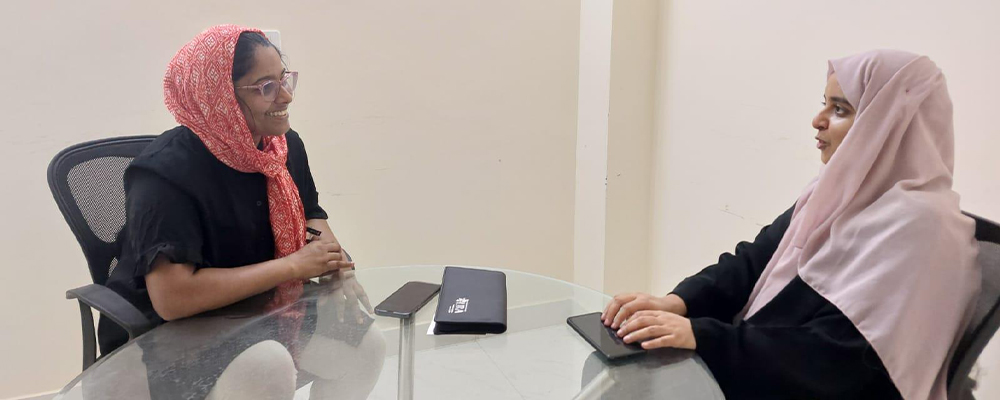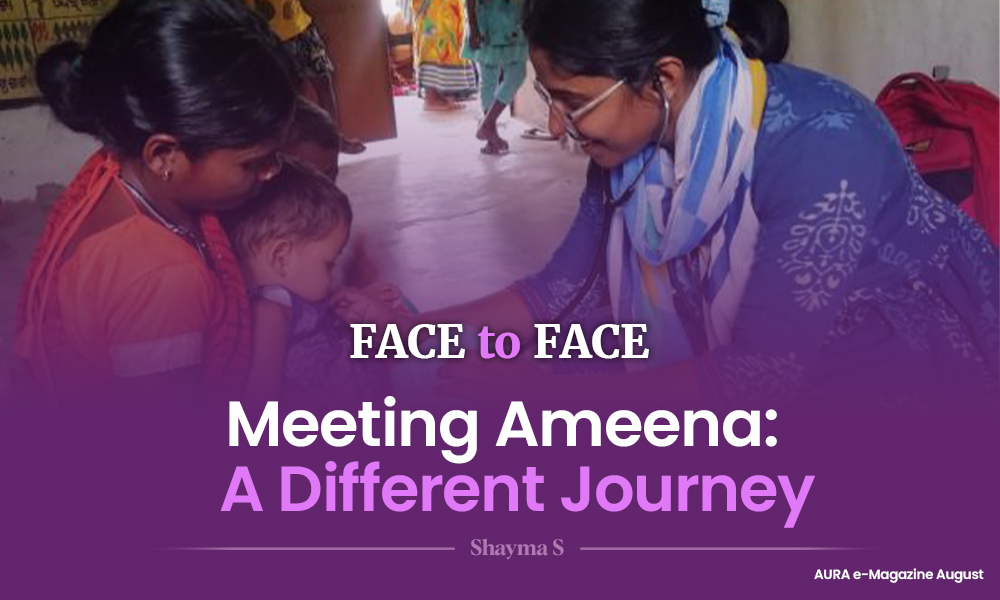
In a time when everyone pushes their children into the rat-race of professional education, competitive exams, and countless “attempts” (that sometimes drain the entire resources of the family and come at the immense cost of mental health), meeting Ameena was a breath of fresh air. I interviewed Ameena Mumthaz MC, a doctor from Kerala who has been accepted into a Master of Medical Sciences in Global Health Delivery degree at the prestigious Harvard University. In Ameena’s own words, she is a “a passionate doctor with grassroots experience, having worked in primary healthcare for tribal populations in Odisha, addressing primary care and mental health issues in displaced communities in Mizoram, and assisting advanced HIV populations in Bihar.” As the second of five children in a Muslim family from Olavattur village in Malappuram, Kerala, she is the currently the only earning member of her family, due to her father’s illness for the past decade. Having worked with the Swasthya Swaraj Society in Kalahandi, one of the poorest districts of Odisha, and currently working in Bihar with families with HIV, Ameena’s trajectory can be described in one word: different.
I asked her as much – having finished her MBBS, did she not want to pursue her PG, or join a big hospital, or the standard trajectory for any doctor in India? Instead of this, Ameena set out to work with some of the most marginalised communities in India, taking financial risks and shifting from place to place. Her journey with Doctors without Borders, the international organisation has exposed her to the realities of illiteracy, caste discrimination, and poverty and how they shape healthcare in India. She has also worked in palliative care.
Meeting Ameena reminded me of how narrowly we define “success stories.” Ameena isn’t the only one taking bold steps or unconventional journeys after achieving what every aspiring doctor wants – an MBBS “seat.” She cites several as her legacy, including the under-appreciated doctors and organisations that do years of back-breaking work that goes unnoticed. Public health is seen as an unglamorous task that does not take you to the hallways of big corporate hospitals.
As Ameena says, “As a doctor working with diverse populations, I’ve seen the challenges people with mental health issues face in understanding their conditions, combating stigma, accessing affordable care, and managing the invisible burden of mental health issues while navigating life. My experiences exposed me to the scarcity of trained professionals, support groups, and psychotherapy services, particularly in underserved areas. Recognizing that mental health support is a luxury for many less privileged individuals, I am motivated to bridge this gap.”
People see rural postings as punishments. After an MBBS degree in India today, it has become almost imperative and automatic to want to pursue an MD immediately. Deviating from this path can be seen as a “waste of time” and certainly not the best use of one’s resources. But in a country with some of the worst doctor-patient ratios, information asymmetry especially in rural and marginalised communities, medical negligence, out-of-pocket expenditure and stigma, we need a lot more Ameenas in our world.
We had this conversation when the NEET news had just broken out. It was like a shadow hanging over our conversation. But it made all the more sense, to step away and explore the roots of medicine – do no harm – in the way she has done


Nice interview. Very inspiring.